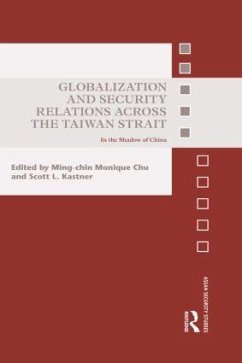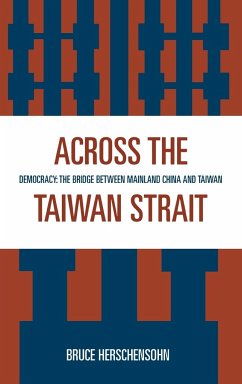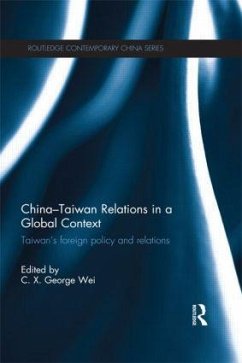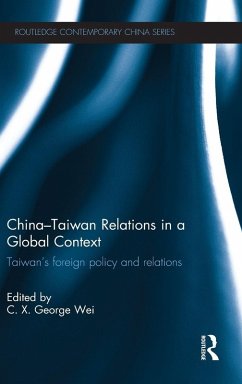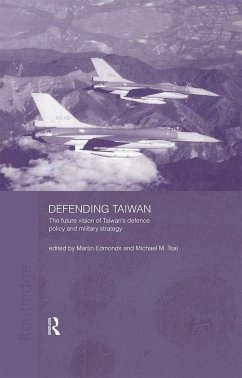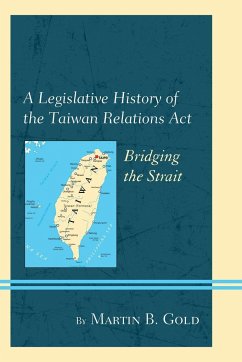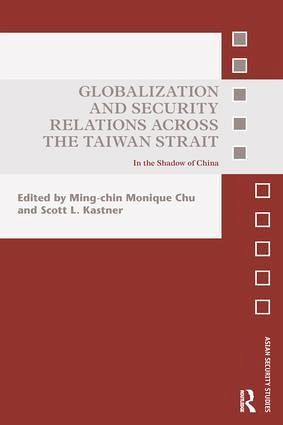
Globalization and Security Relations across the Taiwan Strait
In the shadow of China
Herausgeber: Chu, Ming-Chin Monique; Kastner, Scott L.
Versandkostenfrei!
Versandfertig in 1-2 Wochen
55,99 €
inkl. MwSt.
Weitere Ausgaben:

PAYBACK Punkte
28 °P sammeln!
This book presents an interdisciplinary examination of cross-Taiwan Strait relations and the complex dynamics at play in the region.





